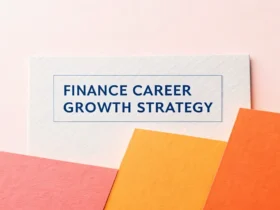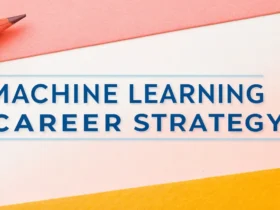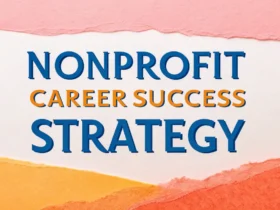Are you dreaming of a career that pays well without spending years in college? You’re not alone. Many folks seek paths to good incomes without the traditional four-year degree. It may sound like a myth, but many career options pay well and only need specific skills or training, not a diploma.
This article will show you seven high-paying career options that don’t need a college degree. These are real jobs, with real salaries, and real chances for you to succeed. We will dive into what these jobs do, what skills you need, and how you can get started. If you are looking for a fresh start or just want to learn about new choices, this is the place. Let’s explore these chances together.
7 High-Paying Careers Without a College Degree
Many assume a college degree is the surest path to a high-paying job. However, this is not always the case. Skilled trades, tech jobs, and entrepreneurial ventures can offer great money, and they do not need a four-year degree. Let’s look at some of these.
1. Web Developer
Web developers build and keep websites. They use code to make websites work well and look good. They can work on the front end (what you see) or the back end (how it works). It is a job in high demand, as businesses need a good online presence.
- Median Salary: \$77,030 per year (Bureau of Labor Statistics, May 2023).
- Skills Needed: HTML, CSS, JavaScript, problem-solving, and attention to detail.
- How to Get Started: Take online courses (Codecademy, Udemy), build a portfolio of websites, and network with other developers.
Web development is a good choice for those who like to solve problems and be creative. You can learn the skills you need online and start building websites right away. With a good portfolio, you can show you have what it takes to do the job, no matter where you learn the skills.
2. Air Traffic Controller
Air traffic controllers make sure planes take off and land safely. They guide pilots and keep an eye on the airspace. They need to stay calm under stress and make quick choices. This job is vital for air safety.
- Median Salary: \$138,550 per year (Bureau of Labor Statistics, May 2023).
- Skills Needed: Clear communication, quick thinking, spatial reasoning, and calm under pressure.
- How to Get Started: Meet the age and education requirements (some college is helpful), pass the Air Traffic Skills Assessment (AT-SA), and complete training at the FAA Academy.
This career needs intense training and a good head on your shoulders. Though some college may help, the FAA gives the training you need to succeed. If you can handle the stress and love planes, this could be a great career.
3. Electrician
Electricians install and keep electrical systems in buildings. They wire lights, outlets, and other equipment. They must know safety rules and local codes. They are always in demand as long as buildings need electricity.
- Median Salary: \$65,220 per year (Bureau of Labor Statistics, May 2023).
- Skills Needed: Knowledge of electrical systems, problem-solving, manual dexterity, and attention to safety.
- How to Get Started: Complete an apprenticeship program (usually 4-5 years), pass a licensing exam, and gain experience.
Becoming an electrician needs time in an apprenticeship, but it pays off. You learn on the job and get paid while you do it. Once you are licensed, you can work for a company or start your own business. People will always need electricians.
4. Plumber
Plumbers install and repair water and drainage systems. They work with pipes, fixtures, and appliances. Like electricians, they must know codes and safety rules. They, too, are always in demand.
- Median Salary: \$60,090 per year (Bureau of Labor Statistics, May 2023).
- Skills Needed: Knowledge of plumbing systems, problem-solving, manual dexterity, and customer service.
- How to Get Started: Complete an apprenticeship program (usually 4-5 years), pass a licensing exam, and gain experience.
Plumbing is another trade where you learn while you earn. An apprenticeship gives you the skills and experience you need. Once you are licensed, you can find work or start your own company. Plumbers are vital for keeping our water systems working right.
5. Dental Hygienist
Dental hygienists clean teeth and teach patients about oral hygiene. They work in dental offices and help dentists with check-ups. They must be good at working with people and have a gentle touch.
- Median Salary: \$87,530 per year (Bureau of Labor Statistics, May 2023).
- Skills Needed: Attention to detail, communication, manual dexterity, and knowledge of dental hygiene.
- How to Get Started: Complete an associate’s degree program in dental hygiene, pass a national board exam, and get licensed.
While this career needs an associate’s degree, it’s shorter than a four-year college. Dental hygienists are an important part of the dental team. They help people keep their smiles healthy. If you care about health and like working with people, this is a good choice.
6. Commercial Pilot
Commercial pilots fly planes for airlines, cargo companies, and other businesses. They must have a pilot’s license and know how to fly different types of planes. They are in charge of the safety of passengers and cargo.
- Median Salary: \$134,630 per year (Bureau of Labor Statistics, May 2023).
- Skills Needed: Flying skills, quick decision-making, spatial reasoning, and calm under pressure.
- How to Get Started: Get a pilot’s license, gain flight experience, and complete the training needed for the type of plane you want to fly.
Becoming a commercial pilot needs time and money for flight training. But, it can lead to a high-paying career. You can start with a private pilot’s license and then work your way up. If you love flying and have a strong will, you can reach this goal.
7. Sales Representative
Sales representatives sell products or services to customers. They must know their products well and be good at talking to people. They can work in many industries and often earn commissions on their sales.
- Median Salary: Varies widely, but high earners can make over \$100,000 per year. (Bureau of Labor Statistics does not provide an exact median salary for all sales representatives.)
- Skills Needed: Communication, persuasion, product knowledge, and persistence.
- How to Get Started: Start in an entry-level sales job, learn about your products, and network with other sales professionals.
Sales can be a good career if you like talking to people and are driven to succeed. Many sales jobs do not need a degree. They care more about your ability to sell. With hard work and good skills, you can earn a lot in sales.
The Skills You Need to Succeed
While a college degree might not be needed for these career options, you need to be good at what you do. Here’s a look at the skills that will help you succeed.
Technical Skills
Technical skills are those specific to your job. For a web developer, it’s knowing HTML and JavaScript. For an electrician, it’s wiring a house. These skills are learned through training, apprenticeships, or online courses. Knowing your craft well is key to getting hired and doing a good job.
Soft Skills
Soft skills are those that help you work well with others. These include communication, problem-solving, and time management. No matter the job, soft skills help you succeed. Employers look for people who can work as part of a team, solve problems, and manage their time well.
Adaptability
The world is always changing, and so are jobs. Being able to learn new things and adapt to change is key. This might mean learning a new coding language, a new type of electrical system, or a new sales strategy. Those who can adapt will always be in demand.
Persistence
Getting into a high-paying career without a degree can be hard. It takes work to learn the skills and get the experience you need. Being able to keep going, even when things are tough, is vital. Do not give up, keep learning, keep trying, and you will reach your goal.
How to Stand Out From the Crowd
So you want one of these jobs, but how do you get it without a degree? Here are some tips to help you stand out.
Build a Strong Portfolio
A portfolio is a collection of your work that shows off your skills. For a web developer, this might be websites you have built. For a plumber, it might be photos of jobs you have done. A good portfolio shows employers what you can do. It’s proof of your skills.
Get Certified
Certifications show you have the skills needed for a job. There are certifications for many fields, from web development to electrical work. Getting certified can help you stand out and show employers you are serious about your career.
Network, Network, Network
Networking is about meeting people in your field. Go to trade shows, join online groups, and reach out to people who do what you want to do. Networking can lead to job leads, advice, and mentorship. It’s about building links and learning from others.
Highlight Your Experience
Even if you do not have a degree, you have experience. This might be volunteer work, part-time jobs, or personal projects. Highlight the skills you gained in these roles and how they relate to the job you want. Experience counts, no matter where you get it.
Overcoming the “No Degree” Bias
Some employers may still prefer candidates with degrees. Here’s how to deal with that bias.
Focus on Your Skills
When you cannot change the rules, change how you play. Instead of hiding your lack of a degree, make your skills the core of your application. Stress what you can do, how well you can do it, and show proof of that ability. Focus on the skills you have. Make these the focus of your resume and cover letter. Show you have what it takes to do the job, even without a degree.
Prove Your Value
Show employers you can do the job, even without a degree. This might mean doing a project for free or working for a lower rate at first. Once you show you can do the job well, you can ask for more money. It’s about proving you are worth the investment.
Find Open-Minded Employers
Not all employers care about degrees. Some care more about skills and experience. Seek out these employers. Look for companies that value skills over credentials. These companies are often more open to hiring those without a degree.
The Future of Work
The world of work is changing. More and more, employers are valuing skills over degrees. Online learning and other options are making it easier to learn new skills. This means more chances for those who do not have a college degree.
The Rise of Skills-Based Hiring
Skills-based hiring is when employers focus on skills rather than degrees. This means they care more about what you can do than where you learned it. This is good news for those without a degree, as it opens up more job chances.
Online Learning and Alternative Credentials
Online learning platforms like Coursera, Udemy, and Codecademy are making it easier to learn new skills. You can get certifications and other credentials online that show you have the skills needed for a job. These options make learning more accessible and affordable.
The Importance of Lifelong Learning
No matter what career you pick, learning should be a lifelong process. The world is always changing, and so are jobs. Being able to learn new things and adapt to change is key. Keep learning, keep growing, and you will stay ahead of the curve.
Is a Degree Always Necessary?
So, can you really get a high-paying job without a degree? The answer is yes, but it takes work. You need to be skilled, persistent, and willing to learn. A degree can open doors, but it’s not the only path to success.
The Benefits of a College Degree
A college degree does have its perks. It can lead to higher earning potential, more job chances, and career growth. It can also give you a broader education and help you grow as a person. For some fields, like medicine or law, a degree is a must.
When a Degree Isn’t Worth It
But for some careers, a degree might not be worth the cost and time. If you can learn the skills you need through other means, a degree might not be needed. Skilled trades, tech jobs, and entrepreneurial ventures can all be good choices without a degree.
Making the Right Choice for You
The best choice depends on your goals, interests, and resources. Think about what you want to do, what you are good at, and what you can afford. Talk to people in your field of interest. Do your research and make a choice that is right for you.
Take the Leap
Many good career options are available that do not need a college degree. Skilled trades, tech jobs, sales positions, and FAA jobs offer a chance to earn a good living without years in college. These careers need skill, training, and a drive to succeed.
If you are looking for a new career path, think about these career options. Do your research, get the skills you need, and do not be afraid to take the leap. With hard work and persistence, you can reach your career goals, no matter your education. You’ve got this!















Leave a Reply
View Comments